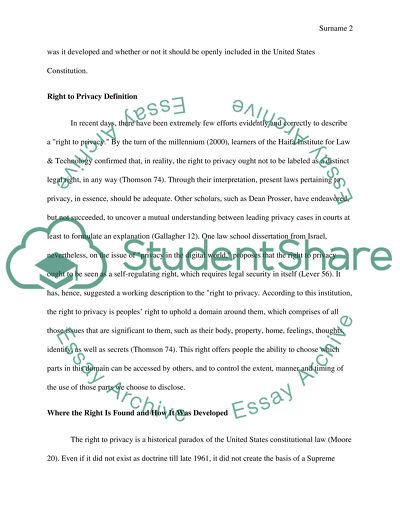Cite this document
(“The Right to Privacy Essay Example | Topics and Well Written Essays - 1250 words”, n.d.)
Retrieved from https://studentshare.org/history/1494267-the-right-to-privacy
Retrieved from https://studentshare.org/history/1494267-the-right-to-privacy
(The Right to Privacy Essay Example | Topics and Well Written Essays - 1250 Words)
https://studentshare.org/history/1494267-the-right-to-privacy.
https://studentshare.org/history/1494267-the-right-to-privacy.
“The Right to Privacy Essay Example | Topics and Well Written Essays - 1250 Words”, n.d. https://studentshare.org/history/1494267-the-right-to-privacy.


